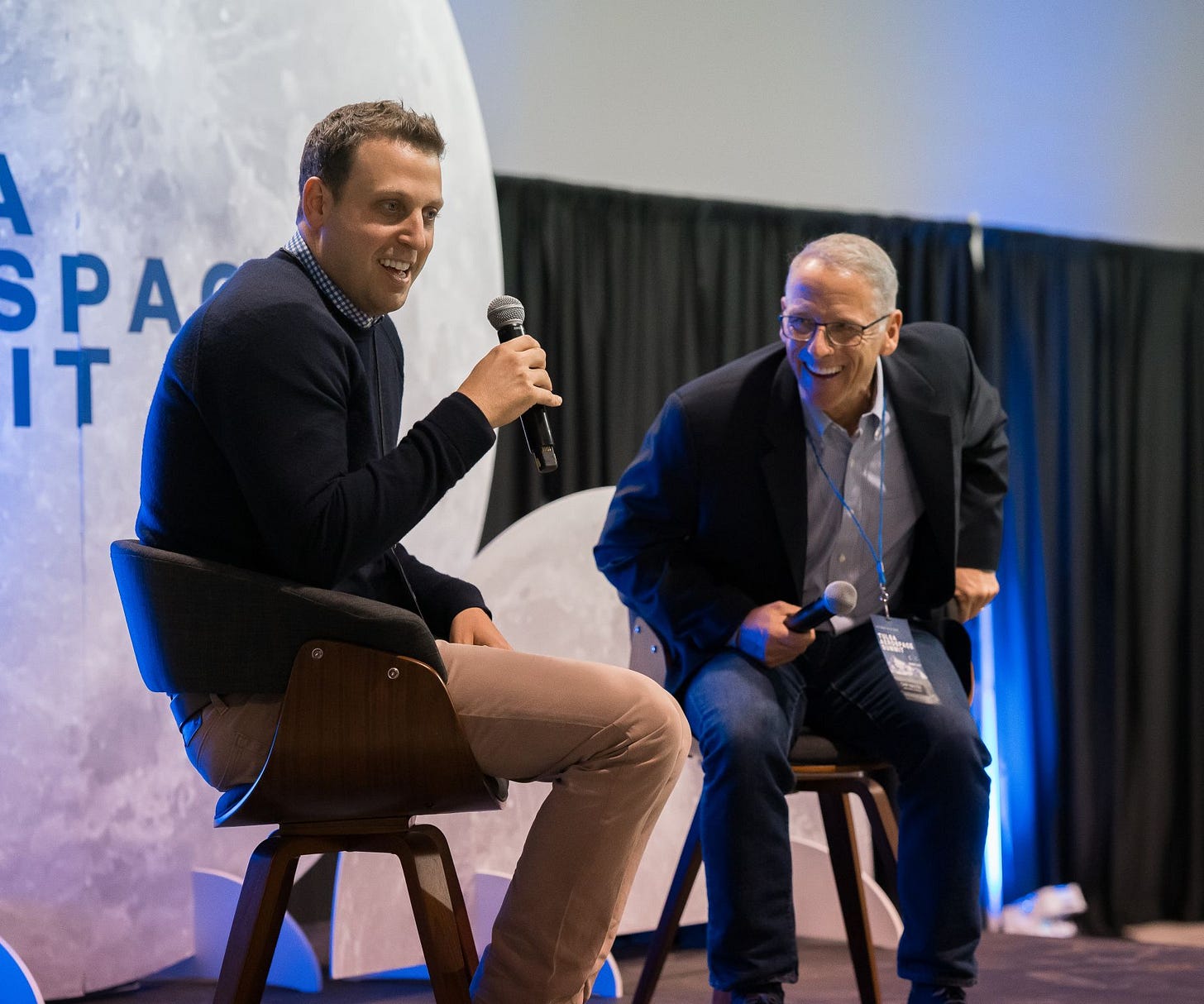Spotlight: Daniel Kleinmann, Daniel Wallman, and Phil Scully - Partners @ Balerion Space Ventures
This week we highlight a trio of emerging managers who want to build a leading venture capital firm with a focus on spacetech. Learn about their philosophy, add-value, and fundraising advice!
Issue No 60. Astronauts 9066.
What motivated the founding of Balerion VC, and what philosophy underpins its operations?
We are at the dawn of a new era when it comes to space. SpaceX was able to bring launch costs down multiple orders of magnitude as a result of their partially reusable launch vehicles. Access to space is finally reliable, affordable, and on pace to become even more so in the coming years. Thousands of new space companies are emerging to take advantage of the new unit economics in this category. They are building out the key infrastructure and emerging applications in space. We launched Balerion to invest in these companies that are instrumental in commercializing space and unlocking humanity’s full potential.
Why does investing in the 'New Space' sector resonate with you?
The opportunity to invest in a disruptive, frontier category with massive market potential that can advance humanity in a positive way comes once in a generation. The new space economy is that opportunity. Space has been considered the final frontier for decades, and we are finally at a new epoch in which private companies are exploring all the opportunities space provides. Much like the early days of the internet, space companies are building off of each success; as we say, a rising tide brings up all spaceships.
Given your background in general VC and investments, how do you perceive the distinctions between space tech VC and conventional VC?
The new space economy is unique from all other categories as it has the potential to lay the foundation for not just a new market, a new economy, but a whole new world. On the other hand, it shares similar characteristics to different VC categories that were considered frontier once. The government plays a crucial role in subsidizing the development of key infrastructure, just like DARPA did for the Internet. Moreover, the A&D primes look to have a similar role in the new space economy as did the Big Pharma companies with Biotech startups. We believe that the new space will have structural similarities to other VC categories once it matures but will likely be multiple times larger in terms of TAMs.
In which specific sectors within space technology does Balerion VC invest?
At Balerion, we look to invest up and down the value chain of the new space economy. That value chain is made up of several sectors and sub-sectors. Those sectors are: Propulsion, Launch, Satellites, In-Space Infrastructure, Software / Suppliers & Emerging Applications. The Emerging applications includes sub-categories such as Space Tourism, The Lunar Economy, In-Space Manufacturing, Energy, and more. The new space economy is rapidly evolving, and so is this value chain. As we see development, we will include new categories in our investment scope. As a firm, we look to create a diversified portfolio that gives our fund exposure to all of these key categories, either directly or through part of their supply chain.
How does Balerion VC assist startups in navigating the unique regulatory and technical challenges associated with space technology?
Our approach has been: get out of their way until they need us, then help however we can. A lot of the time, that means making introductions to other investors, customers, suppliers, or talent. Sometimes, it includes providing technical review support or building independent revenue models that can be shared with other investors evaluating the company. One of the partners, Daniel Wallman, spent many years as an aerospace engineer at Boeing’s Phantom Works group, then transitioned to Blue Origin, where he led business development and engine sales. Through his expertise in the sector, we can identify and navigate regulatory hurdles. However, we are currently seeing a trend toward governments fostering space economy growth through targeted deregulation, such as the case of launching nuclear power systems into space through President Trump’s Space Policy Directive 6.
What criteria are employed by Balerion VC to evaluate prospective investment opportunities in the space tech arena?
Balerion uses several key pillars that we look for in each company we invest into, those being: Exceptional Founders, Large Return Potential, Defensible Technology, and part of the value chain of the new space economy. We look for businesses that can generate meaningful revenues in the near term and be well-positioned for M&A or an IPO. Dual-use space & defense companies (companies that sell to commercial space and the defense department) have been especially attractive to evaluate due to the recent geopolitical environment.
Are there emerging investment trends in space technology that Balerion VC finds particularly intriguing? Where should aspiring entrepreneurs focus on building a billion-dollar company?
Balerion has been spending a lot of time focused on Dual-Use Space & Defense Tech companies as well as companies competing in the Lunar economy. Increased demand for dual-use space & defense tech companies from governments worldwide has increased the number of available contracts and the value of these contracts. At the same time, this continues to be a category with high barriers to entry and limited competition. The Lunar Economy has similar attributes: a large commitment of capital from the US government to a small select group of companies. We believe that these categories will benefit from a serious demand from the US government as well as a significant commercial opportunity right behind it.
What advice would you offer to individuals keen on investing in the space sector?
It is probably going to feel uncomfortable as it is new and the learning curve is rather steep but once you make a small, first investment, you’ll catch up very quickly and realize you are participating in the dawn of a new era, an era that can change humanity forever.
What steps should startups take to excel in fundraising and business operations at large?
Build meaningful relationships with people you want to work with. Play the long game and don’t be shortsighted. Networking and being active within the space community are always crucial in fundraising.
Thank you for the insights!
We aim to ignite passion for space exploration. Whether you're a VC, business entity, angel investor, accelerator, or contemplating a launch — reach out to our research hub at hello@spaceambition.org. We’d love to chat with you!









Excellent post!